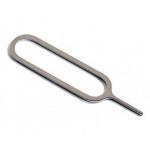The main members of the sentence are expressed. The main members of the sentence, the predicate
In this lesson, we will learn that in a sentence the main members are distinguished - the subject and the predicate. The subject and predicate are grammatical basis suggestions. Learn to find the subject and predicate in a sentence and underline them.
Remember: subject names who or what the sentence is talking about, and answers the questions “who?”, “What?”. When parsing a sentence, it is underlined with one line.
For example: Schoolchildren read books. What is the proposal about? About schoolchildren. Who - pupils- subject, underline with one line. What are the students doing? Read. This is the second main member sentences - predicate. Emphasized by two lines. Schoolchildren read books.
Remember: predicate- the main member of the proposal. Names what is said about the subject, answers questions what to do? what to do? When parsing a sentence, it is underlined by two lines.
We learned that in a sentence the main members are distinguished - the subject and the predicate. The subject and predicate form the grammatical basis of a sentence.

Rice. 4. The grammatical basis of the sentence ()
And now we will complete tasks that will help us consolidate the knowledge gained.
We write out the grammatical basis of the sentences and underline the subject and predicate.
Spring has come. Ringing streams ran across the land. Birds sang on the branches. The first blades of grass appeared on the thawed patches.
Let's check the correctness of this task.
Spring has come. It has come - the predicate, spring - the subject.
The streams ran. Brooks - subject, ran - predicate.
The birds sang. They sang - the predicate, the birds - the subject.
Weeds appeared. Appeared - the predicate, blades of grass - the subject.
Insert a suitable subject.
The cold north __________ is blowing. White _________ fall to the ground. Fluffy ________ jumps from branch to branch in the forest.
Words to insert: squirrel, wind, snowflakes.
Let's check:
A cold north wind is blowing. White snowflakes fall to the ground. A fluffy squirrel jumps from branch to branch in the forest.
Let's make sentences from these words. Find the grammatical basis in each sentence and underline it.
Crow, sitting on, a branch, black.
Gray, gnaws, carrots, hare, delicious.
Apples, on, ripe, apple tree, red.
Coat, hanging, hanger, on, baby.
One of the answer options:
A black crow sits on a branch.
Proposal basis: crow sitting .
A gray hare gnaws a delicious carrot.
Proposal basis: hare gnaws .
Red apples ripened on an apple tree.
Proposal basis: The apples are ripe .
A child's coat is hanging on a hanger.
Proposal basis: coat hanging .
In the next lesson, we will learn which members of the sentence are called secondary, learn how to find them in the sentence, highlight them with underlining. Let's talk about common and non-common offers.
- Klimanova L.F., Babushkina T.V. Russian language. 2. - M.: Enlightenment, 2012 (http://www.twirpx.com/file/1153023/)
- Buneev R.N., Buneeva E.V., Pronina O.V. Russian language. 2. - M.: Balass.
- Ramzaeva T.G. Russian language. 2. - M.: Bustard.
In this lesson, we will learn that in a sentence the main members are distinguished - the subject and the predicate. The subject and predicate form the grammatical basis of a sentence. Learn to find the subject and predicate in a sentence and underline them.
Remember: subject names who or what the sentence is talking about, and answers the questions “who?”, “What?”. When parsing a sentence, it is underlined with one line.
For example: Schoolchildren read books. What is the proposal about? About schoolchildren. Who - pupils- subject, underline with one line. What are the students doing? Read. This is the second main member of the sentence - the predicate. Emphasized by two lines. Schoolchildren read books.
Remember: predicate- the main member of the proposal. Names what is said about the subject, answers questions what to do? what to do? When parsing a sentence, it is underlined by two lines.
We learned that in a sentence the main members are distinguished - the subject and the predicate. The subject and predicate form the grammatical basis of a sentence.

Rice. 4. The grammatical basis of the sentence ()
And now we will complete tasks that will help us consolidate the knowledge gained.
We write out the grammatical basis of the sentences and underline the subject and predicate.
Spring has come. Ringing streams ran across the land. Birds sang on the branches. The first blades of grass appeared on the thawed patches.
Let's check the correctness of this task.
Spring has come. It has come - the predicate, spring - the subject.
The streams ran. Brooks - subject, ran - predicate.
The birds sang. They sang - the predicate, the birds - the subject.
Weeds appeared. Appeared - the predicate, blades of grass - the subject.
Insert a suitable subject.
The cold north __________ is blowing. White _________ fall to the ground. Fluffy ________ jumps from branch to branch in the forest.
Words to insert: squirrel, wind, snowflakes.
Let's check:
A cold north wind is blowing. White snowflakes fall to the ground. A fluffy squirrel jumps from branch to branch in the forest.
Let's make sentences from these words. Find the grammatical basis in each sentence and underline it.
Crow, sitting on, a branch, black.
Gray, gnaws, carrots, hare, delicious.
Apples, on, ripe, apple tree, red.
Coat, hanging, hanger, on, baby.
One of the answer options:
A black crow sits on a branch.
Proposal basis: crow sitting .
A gray hare gnaws a delicious carrot.
Proposal basis: hare gnaws .
Red apples ripened on an apple tree.
Proposal basis: The apples are ripe .
A child's coat is hanging on a hanger.
Proposal basis: coat hanging .
In the next lesson, we will learn which members of the sentence are called secondary, learn how to find them in the sentence, highlight them with underlining. Let's talk about common and non-common offers.
- Klimanova L.F., Babushkina T.V. Russian language. 2. - M.: Enlightenment, 2012 (http://www.twirpx.com/file/1153023/)
- Buneev R.N., Buneeva E.V., Pronina O.V. Russian language. 2. - M.: Balass.
- Ramzaeva T.G. Russian language. 2. - M.: Bustard.
In this lesson, we will learn that in a sentence the main members are distinguished - the subject and the predicate. The subject and predicate form the grammatical basis of a sentence. Learn to find the subject and predicate in a sentence and underline them.
Remember: subject names who or what the sentence is talking about, and answers the questions “who?”, “What?”. When parsing a sentence, it is underlined with one line.
For example: Schoolchildren read books. What is the proposal about? About schoolchildren. Who - pupils- subject, underline with one line. What are the students doing? Read. This is the second main member of the sentence - the predicate. Emphasized by two lines. Schoolchildren read books.
Remember: predicate- the main member of the proposal. Names what is said about the subject, answers questions what to do? what to do? When parsing a sentence, it is underlined by two lines.
We learned that in a sentence the main members are distinguished - the subject and the predicate. The subject and predicate form the grammatical basis of a sentence.

Rice. 4. The grammatical basis of the sentence ()
And now we will complete tasks that will help us consolidate the knowledge gained.
We write out the grammatical basis of the sentences and underline the subject and predicate.
Spring has come. Ringing streams ran across the land. Birds sang on the branches. The first blades of grass appeared on the thawed patches.
Let's check the correctness of this task.
Spring has come. It has come - the predicate, spring - the subject.
The streams ran. Brooks - subject, ran - predicate.
The birds sang. They sang - the predicate, the birds - the subject.
Weeds appeared. Appeared - the predicate, blades of grass - the subject.
Insert a suitable subject.
The cold north __________ is blowing. White _________ fall to the ground. Fluffy ________ jumps from branch to branch in the forest.
Words to insert: squirrel, wind, snowflakes.
Let's check:
A cold north wind is blowing. White snowflakes fall to the ground. A fluffy squirrel jumps from branch to branch in the forest.
Let's make sentences from these words. Find the grammatical basis in each sentence and underline it.
Crow, sitting on, a branch, black.
Gray, gnaws, carrots, hare, delicious.
Apples, on, ripe, apple tree, red.
Coat, hanging, hanger, on, baby.
One of the answer options:
A black crow sits on a branch.
Proposal basis: crow sitting .
A gray hare gnaws a delicious carrot.
Proposal basis: hare gnaws .
Red apples ripened on an apple tree.
Proposal basis: The apples are ripe .
A child's coat is hanging on a hanger.
Proposal basis: coat hanging .
In the next lesson, we will learn which members of the sentence are called secondary, learn how to find them in the sentence, highlight them with underlining. Let's talk about common and non-common offers.
- Klimanova L.F., Babushkina T.V. Russian language. 2. - M.: Enlightenment, 2012 (http://www.twirpx.com/file/1153023/)
- Buneev R.N., Buneeva E.V., Pronina O.V. Russian language. 2. - M.: Balass.
- Ramzaeva T.G. Russian language. 2. - M.: Bustard.
Any sentence of the Russian language can be divided into components, which in science are called "sentence members". Among them are the main and secondary. Most of the sentences cannot exist without the main ones, they form its basis, and the secondary ones make the text more informative and rich. What are the main and secondary members. suggestions?
Main
The subject and predicate in a sentence are its main members.
- The subject means the thing that does the action. Questions to help you find it parsing- who is this?" (if the action is animate object) or "what?" (if the sentence refers to a phenomenon or an inanimate object).
- The predicate is most often expressed by the verb and means the action that the subject performs. Questions to determine - "what does it do, what will it do?"
Here's an example: Good mood helped boys overcome difficulties. In our example, the word “mood” answers the question “what”, it is the subject that is underlined by one line during analysis. To find the predicate, we ask the question: "What did the mood do?" It helped. This word is the predicate, expressed by the verb, underlined by two lines. As a result, the sentence with the found main members looks like this: Good (what?) mood (underlined solid line) (what did you do?) helped (underlined by two solid horizontal stripes) the boys overcome difficulties.

How to recognize the subject and predicate when parsing
In order not to make a mistake, figuring out where the subject is, but you should use the hint table.
First of all, one must find actor asking the question: “Who? What? ”, This will be the subject. Next, look for the predicate.

Minor
In order to parse the proposal by members, one should be able to find circumstances, definitions and additions. It is they who are the secondary members, the purpose of which is to concretize and clarify the main (or other secondary). How to find them?
- Definition. Questions that will help to detect it in the sentence - "what", "whose".
- Addition. Most often, cases are given to him: "to whom (what)", "with whom (with what)", "about whom (about what)" and others. That is, questions of all cases, in addition to the nominative.
- Circumstance. It can be found by asking questions of adverbs or participles: "from where", "where", "why", "how", "where" and the like.
Let's take an example. Let's find the main and secondary terms. suggestions:
The little boy hurried along the path.
There is to parse the sentence by members, it will turn out like this:
(which, definition) A small (who, subject) boy (as, circumstance) hurriedly (what he did, predicate) walked (along what, addition) along the path.

Each major and minor member sentence answers its own question, carries a certain load and performs its own role in the sentence.
How to recognize
In order to avoid mistakes when identifying additions, definitions and circumstances, you can use such a summary table-hint.
| Parameter | definition | Addition | Circumstance |
| Meaning | Characterizes the attribute of an object | Means subject | It matters place, time, mode of action |
| Questions | Which? What, what, what? | Indirect cases: to whom (what), by whom (what) and others | Where, where, from where, why, when, how - all questions of adverbs |
| What is expressed | Adjective Participle Cardinal number The case matches the case of the main word | Noun (both with and without a preposition) Pronoun The case can be any, except for the nominative | Noun |
| As emphasized | Wavy line | Dotted line | dot dash |
| Example | (Which?) beautiful vase stood in (whose?) mother's room. | The kid was carrying (what?) a basket (with what?) of mushrooms. | (where?) In the forest (when) it was damp in autumn. |
To identify which member of the sentence is in front of us, we must first ask a question.
Additional hints
To find the main members of the proposal, you must follow the rules. The subject and the predicate are not a phrase, this is already a sentence, albeit a very short one. The main members are independent of each other.

Syntactic analysis should begin with the discovery of the subject, then it turns out what the predicate is, how it is expressed. Then the subject group should be identified with the help of questions, only after that - the predicate group. Everyone minor member dependent:
- from one of the main ones;
- from one of the secondary
In one sentence there can be several main and secondary members. suggestions. If there are several bases, then the sentence is complex - compound or complex. If there are several definitions, additions, circumstances, but the basis is one, then the proposal is simple and widespread.
Often you can find appeals, for example: Katya, go do your homework. Despite the fact that the appeal "Katya" resembles the subject, it is not a member of the sentence and is designated as an appeal.
Difficult cases
Not all major and minor members of the sentence look obvious. Difficult but interesting cases are varied:
- A one-part sentence has only one main member. it was getting dark(this is a predicate, the sentence is impersonal). Today we were told(predicate, indefinitely personal sentence), that the exam has been cancelled.
- The predicate may include an adjective: The weather was rainy. In this example, the combination "was rainy" is a compound nominal predicate.
- The predicate may include several verbs: Today Vasya started to study.“Began to study” is a compound verb predicate.

Major and minor members sentences must be distinguished correctly when parsing a sentence.





